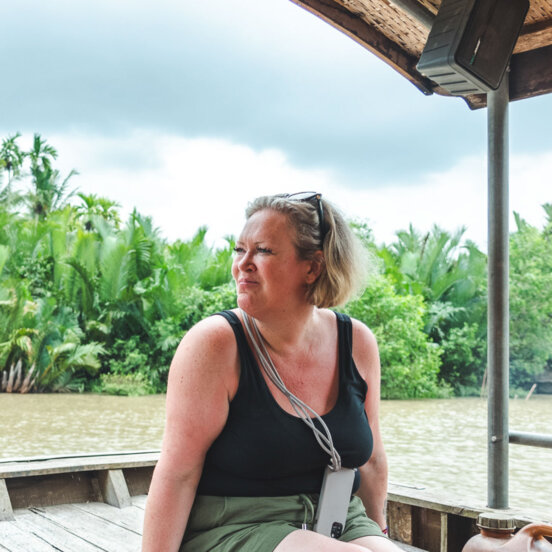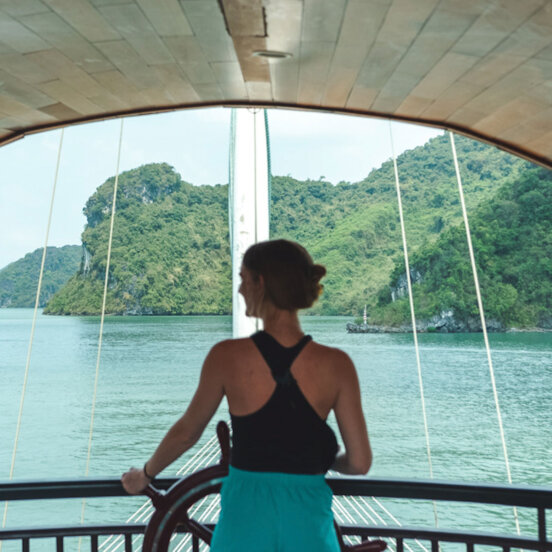The ultimate solo travel guide to Croatia: Everything you need to know

Croatia’s reputation for solo travel is well established. The country stretches up to the heart-shaped Istrian peninsula in the north, abundant with stoney old towns, vineyards and hilltop hotels, and runs down along an idyllic Adriatic coast rich in seafood, snorkelling spots and secluded islands. The red-roofed walled towns of Split and Dubrovnik act as nautical gateways to these offshore outposts, but they are far from only that – and ideally you’ll want to idle away time in both hubs.
The oft overlooked interior of Croatia is rich with mountains, waterfalls and lakes. There’s plenty to just look at but if you’re after adventure and immersive experiences, there’s kayaking, boating, stand up paddleboarding (SUP) opportunities and vineyards to cycle through.
Cast all that under the glow of the Mediterranean sun and you’re presented with, surely, one of Europe’s most charming destinations for solo travel. But if you don’t want to go entirely alone, a group solo trip with Flash Pack lets you explore in the company and comfort of other like-minded travellers. Here’s what to expect on a solo holiday in Croatia.

Croatia travel facts
Croatia has more than 1,200 islands, crags and islets off the coast of its mainland, with only around 50 of those being inhabited. Hvar and Korcula are the most popular for visitors, but inland Croatia also holds the world’s smallest town – the quietly-named “Hum” – home to a population of 20 people.
Beyond its coastline and old towns, Croatia is a verdantly green country, with 10% made up of a combination of 11 nature parks, eight national parks and two nature reserves. One of the most impressive spots is Plitvice Lakes National Park, awarded Unesco World Heritage status, along with nine other cultural and natural wonders in Croatia, including the Historical Complex of Split and the Old City of Dubrovnik.
Is Croatia good for solo travel?
Croatia is well set up for solo travel with an excellent tourism infrastructure. It’s also safe – including for women travelling on their own – with low crime rates. Getting around the country is easy, plus there’s a lot to see and do, from vineyards to old towns, an island-dotted coastline and a knitted interior of wild rivers and lakes for adrenaline-fuelled activities. Wherever you go, an embedded cafe culture exists, meaning it’s easy to relax with a book or make conversation with other travellers and locals.

Best places to visit in Croatia
With coastal towns scattered along the shores, islands on one side and national parks on the other, there’s a lot to see and do on a solo holiday to Croatia. Two of the highlights are Dubrvonik with its walled city studded with restaurants and cafes, and the flurry of surrounding spectacular islands. Naturally, you’ll want to while away an afternoon kayaking to Lokrum island before hiking Dubrovnik’s Mount Srd and catching sunset from one of the city’s waterside bars.
Further along the coast, there are rolling wineries and little towns, like Ston and Mali Ston, serving up delicious oysters, and the isthmus Pelješac peninsula. Head to Mrežnica for cascading waterfalls and secluded forests, Plitvice Lakes National Park for more watery adventures, and Split and Zagreb for the food and thriving markets.
A trip with Flash Pack takes care of all of that with the eight-day Exclusive Croatia itinerary, which combines unique experiences on land and sea with the company of like-minded solo travellers.
Where to stay as a solo traveller in Croatia
What is accommodation like for solo travellers in Croatia? Well, there are beautiful lakeside resorts, luxury coastal stays and decadent design hotels, often at more affordable prices than the rest of Europe, even in high summer.
Unfortunately, there’s no getting around the single supplement that often hits solo travellers hardest. You can opt to share a room on a group solo trip to Croatia with Flash Pack, which means setting you up in the same smart stays but splitting the cost. Still want your own private room? That’s no problem, either.

How to get to Croatia
As with much of Europe, the cheapest, quickest and easiest way to get to Croatia is flying. There are five main airports for the majority of scheduled flights from Europe and North America: the capital Zagreb in the northwest; Pula on the northern Istrian peninsula; the coastal Zadar along the Dalmatian coast; Split, the largest city on the Croatian coast; and Dubrovnik in the south.
It’s also possible to get to Croatia overland, with the main rail hubs being Zagreb, Pula, Split, and Rijeka on the coast close to the Slovenian border. It might involve some hopping but there are train routes from a number of European cities. You can also take a ferry from multiple points in Italy to ports along the coast of Istria.
How to get around Croatia
Part of the reason why Croatia is ideal for solo travel is because of how easy it is to get around. There’s an extensive train and bus network, with buses usually coming in two options: slow or fast. The slow buses tend to be more scenic, more affordable and popular with solo travellers.
Hiring a car is also easy and some of the drives are beautiful, like the coastal route between Dubrovnik and Split. If you’re hoping to meet new people and make friends on your adventures in Croatia, travelling by boat is a great option given that a fair chunk of the country is coastal. You can join sails that stop in multiple destinations, too.

Best time to visit Croatia
Typically, Croatia has a temperate climate where summers (June to August) are dry and hot, while winters are cooler. The “rainy” season is from the middle of September to the beginning of May, with a 22% chance of rain almost every day. While this isn’t a particularly high chance, it’s worth taking into account if you’re considering spending time outdoors and hiking.
July is the hottest month, with an average daily temperature of 31°C, but it’s also the busiest time for tourism, when the compact walled towns of Split and Dubrovnik can get very busy. Late spring and early autumn are your best chances for fewer crowds, while sea temperatures are still pleasant and the sun is shining.
Croatia travel itineraries
While the coastline is beautiful, the country has a lot to offer beyond the obvious. Make the most out of your solo holiday to Croatia by doubling up with Slovenia on Flash Pack’s Adriatic Adventure itinerary. You’ll get to experience Lake Bled and dine in a Slovenian castle before crossing over to Croatia, where you’ll hunt for truffles in Istria’s forests, explore Roman ruins in Pula and have a chilled day in Rovinj. Or focus entirely on Croatia with the Exclusive Croatia tour, snorkelling in isolated spots off the coast, kayaking down waterfalls in Mrežnica, cycling between vineyards on the slender Pelješac peninsula and dining in the countryside with a local Croatian family.

What to pack for solo travel in Croatia
Croatia offers three different types of travel and terrain: the coast and its islands, the cobbled cities, and the interior hinterland of lakes and mountains. It’s worth considering how active you’re planning to be when you’re packing. But, generally for solo travel in Croatia, think about what you might take for a typical Mediterranean break.
Come prepared for the coast with sunscreen, swimwear and some water shoes for the shingly shoreline. For the city, bring comfortable shoes for the cobbled streets. Scrambling around in the wilderness? Bring hiking boots and light layers, especially during the shoulder seasons of spring and autumn. Having a pack of playing cards can see you through lazy lunches and beach trips, as well as being a great tool for meeting new people in bars and hotels.
Solo travel advice for Croatia
Don’t be afraid to mix up where you’re staying and visiting. Since the tourism infrastructure is so well suited to solo travel, it’s easy to venture outside of cities and explore the countryside, islands and nature attractions, too. It’s likely that you’ll run into other travellers no matter where you go on your solo holiday to Croatia.
The nation traditionally has quite a meat heavy diet, so if you’re vegetarian or vegan, do research beforehand on where to eat. If you eat fish, settle in for a lovely evening of seafood in any of the country’s many waterside restaurants. With Croatia being predominantly coastal, it’s one of the best things you can do.

Is it safe to travel solo in Croatia
Croatia is a popular destination for solo travellers and thousands of people visit every year, with most trips being trouble-free. However, do check out the Foreign and Commonwealth Office (UK), the Department of State Travel Advisories (US) or your country’s local government guidelines for the latest advice before travelling.
Once there, follow local advice and be aware of your surroundings and belongings. Stick to the usual safety precautions, like avoiding dimly lit areas and keeping valuables on you. For extra peace of mind, consider travelling with a group of other solo travellers.
Ready for your next adventure? Try group solo travel to Croatia with Flash Pack – designed exclusively for people in their 30s and 40s, seeking the independence of solo travel within the safety of a group.
A cool 98% of Flashpackers arrive solo to join our group adventures. So, you’ll be in good company – whether a first time solo traveller or a seasoned pro looking for like-minded new friends.
Images: Flash Pack










